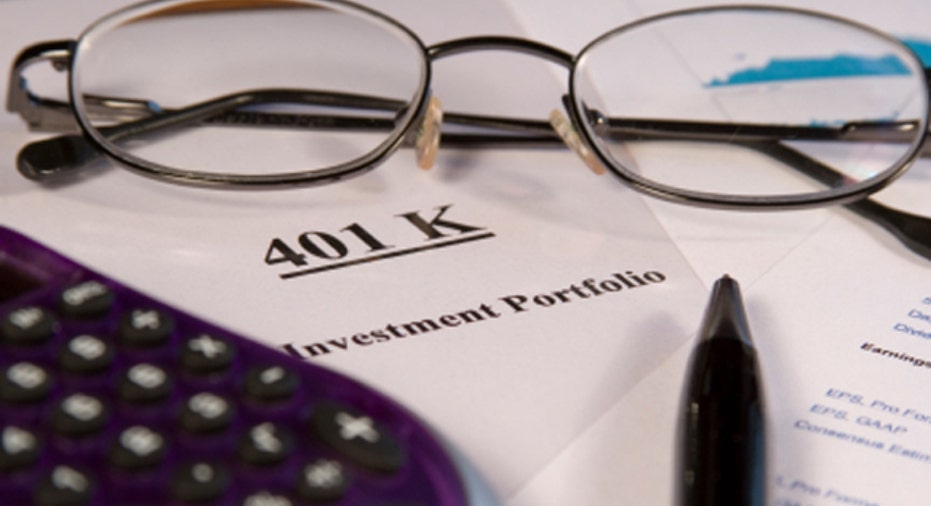Mutual Fund Industry Playing Defense on 401(k)s

WASHINGTON – The mutual fund industry is getting a little nervous about all the Washington talk about limiting tax loopholes and perceived shortcomings of the current retirement system.
Its leaders, such as Paul Schott Stevens, president of the Investment Company Institute (ICI) trade group, fear that tax breaks for 401(k) accounts could get nipped. And so, they are defending the popular support for and success of those workplace defined-contribution plans.
"The patient is doing very well," Stevens said in a private briefing on research the ICI intends to release on Thursday. "We're trying to counter all of the doom and gloom about the 401(k) system being a failure and that it doesn't work," Stevens said. "The participants don't feel that way."
The ICI research, shared early with Reuters, describes a system that is broadly and solidly supported by Americans who have plans and by Americans who don't. A sizeable majority said they find that 401(k) plans help them get ready for retirement and - spoiler alert - they like the tax breaks. (Contributions to these accounts typically are made with pre-tax dollars and taxed only when they are withdrawn).
Plan participants have remained fairly constant in their saving and investing behavior despite the ups and downs of the economy, according to the ICI. In the first nine months of 2012, for example, only 2.8% of participants took any withdrawals from their plans and 2.1% stopped contributing.
And an overwhelming majority of the people surveyed by ICI think it's important that workers get to make their own in-plan investment decisions, and that Washington not try to force decisions, Treasury bonds, or insurance annuities on participants.
The research, which combined a household opinion survey with a review of participant actions by plan recordkeepers, follows a variety of remarks and studies which, taken together, could signify threats to the 401(k) system. President Barack Obama on Sunday called for closing tax loopholes protecting the wealthy.
He has also proposed limiting the tax benefits of income exclusions like retirement account contributions to 28%, even for taxpayers in higher brackets. (While workers of all income levels can benefit from defined-contribution plans, the benefits are bigger for high earners in upper tax brackets who gain bigger tax write-offs and can afford to contribute more.)
A couple of different studies, including one released on Feb. 5 by the University of Michigan, showed that the troubling 2008-2009 period saw declining participation in workplace retirement plans and elevated levels of pre-retirement withdrawals from the plans.
So far, all of that is just talk, and paper. But workers using their own 401(k) plans to save for retirement should take note, and perhaps make adjustments to their own retirement accounts. Here's how.
-- Avoid the urge to panic. Defined-contribution plans are extremely popular with workers, and there's no real evidence that Washington will tread on that space - or, absent a fiscal-cliff-like emergency, even tackle tax reform at all.
Stevens pointed out that long-term tax deferral can be a big boon to folks even at low tax brackets. So, should those tax benefits get shaved back to the 28% level, even high-bracket participants still would profit from contributing to 401(k)s, albeit not as much as they do now.
-- Keep stockpiling cash. Contributing to a company 401(k) plan at least up to the level your employer will match is a no-brainer. It really is the closest you'll get to free money. After that? Look at your options. Big employers and good little employers offer investment choices that are solid performers with low fees; you can capitalize on their large-scale offerings and the convenience of a payroll deduction to max out your contributions. But if your plan offers poor investment options or high fees, you do have other options. Though there are income limits, most workers would qualify to put tax-deductible money into a private individual retirement account in lieu of their 401(k).
-- Be sensible about loans. A lot has been made lately of people borrowing from their 401(k) plans. If you're strapped for cash, this can make sense. If you're borrowing an amount you can afford to repay, paying interest back to your own account, and replacing the money before you leave the job, a self-dealt 401(k) loan can be more economical than a credit card advance, for example. The ICI reported that roughly 18% of participants have loans outstanding, and that the average loan amount outstanding is about 7% of the amount left in the account.
-- Use the power you say you want. Respondents don't want the government telling them what to do with their 401(k) money, but they don't necessarily take advantage of their own right to manage it. Excluding those people who automatically allocate their investments within target-date funds, fewer than 10% of participants shifted their investment mix in the first nine months of 2012, the ICI said. That includes ordinary rebalancing of assets.
Maybe that's a sign that employees are steadfast investors, but maybe it's a sign of inertia. Those retirement plan assets could make up a significant portion of your income in retirement, so make sure you get it right. Use third-party advice or study investing yourself so that you feel confident you've got the right mix of stocks and bonds and foreign investments and commodities. Then remember to rebalance, at least once a year, to keep your designed asset allocation where it should be.



















